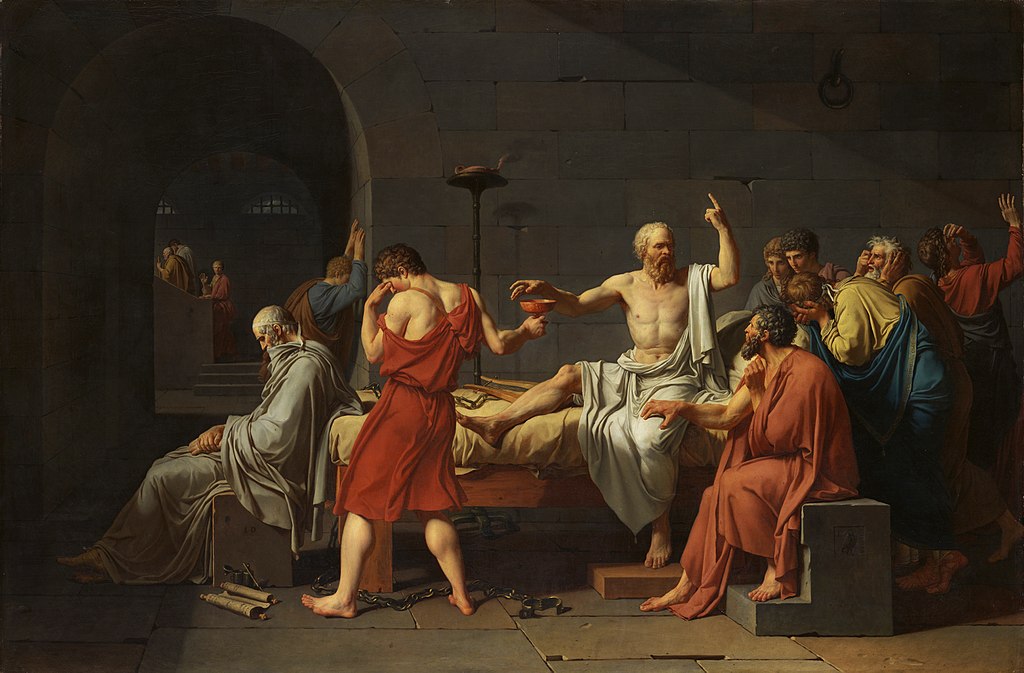What I learned from four years of intensive socratic seminars, and how I plan on using that as a teacher.

Before my undergraduate career, I had done exactly one formal socratic seminar in my life. It had been in my AP Literature class, and only happened because my teacher was being formally observed for his Master’s program in education and he needed his “good” class to do a “good” lesson for his observation. That seminar was probably pretty decent, as far as high school socratic seminars go, but there were major awkward moments, too, and I left the day wondering whether I had said enough, or whether I had appeared to be “actively involved,” as the rubric required.
Little did I know that within four years of that day in class, I would have participated in nearly two hundred formal socratic seminars. My undergraduate program of study was centered around a Socratic style of education. Over the course of four years, we read chronologically through history’s greatest works of philosophy, literature, theology, and social sciences, discussing each text for two and a half hours in socratic form. That high school version of me, who left her seminar wondering whether she had said enough to be an active participant, would have been terrified to know that feeling would never quite go away.
Over those four years, I came to greatly value the process of a socratic-style discussion. I believe the style is a valuable way to teach students to take ownership of their learning: to read a text or analyze a video with the knowledge that they will need to know it well enough to become a part of the conversation it invites. I plan on using socratic seminars in my own classroom for exactly those reasons.
As I enter into the field of teaching, and I look at the ways in which socratic seminars may be integrated into my teaching style, there are a few things for me to keep in mind–things from my own experience that I need to remember as I take over the teacher’s perspective.
The first is that not every student will participate. I was often that student. There were days when I sat through two and a half hours of discussion and didn’t say a single word. That’s a problem. In a twenty minute discussion, it’s true that not everyone will talk, and that listening is just as important as talking, but if a student has sat through four or five seminars over the course of the year and has never once spoken, the teacher needs to do something. The Socratic method revolves around the assumption that every participant will participate; if that means giving students “talking tokens” that they are required to toss into the middle of the circle when they talk, use those. Listening is important, but never talking is not okay.
The second thing I believe teachers need to remember when leading a socratic seminar is that silences are okay. Yes, they’re awkward, and yes, as a future teacher I completely understand the desire to fill them. Refrain. Eventually, one of the students will be so awkwarded out by the awkward silence that they will speak up. If the silence stretches on too long, consider tossing out a new question or bringing attention to a different part of the text. Make it a generic, open-ended question, and maybe even let it stray a bit into personal experience instead of remaining strictly in the text. Seminar leaders have options for moving the conversation along, but only use those once you have fully exhausted the power of the awkward silence.
The final thing I want to point out about socratic seminars is that foundational content matters. It’s impossible to have a good discussion if you have a shallow, easy text. On the flip side, it’s nearly impossible to have a good discussion if the text is so far past students’ abilities that they are unable to comprehend what they are supposed to be discussing. A good text (I’m using text as a general term; this could also be a video, a piece of music, a work of art, etc.) must fit within the students’ ability level while presenting complex ideas. The best seminars, in my experience, have been with moderate-level texts that bring up deeply personal, applicable issues. When you find the right texts, the seminar will fly by.
These are just a few elements of socratic seminars that I plan to keep in mind while using this method in my future classrooms. I believe that the Socratic method is a fun and engaging way to let the students take control of discussion on a large scale, but it also comes with its challenges. This is not an “all-day every-day” activity for secondary students, but it is definitely something that I hope to integrate as I go into the field of education.
Feel free to continue the conversation in the comments below! If you are interested in reading more about trends in college-level socratic seminars, I wrote this article for studybreaks magazine after my junior year of undergrad.
